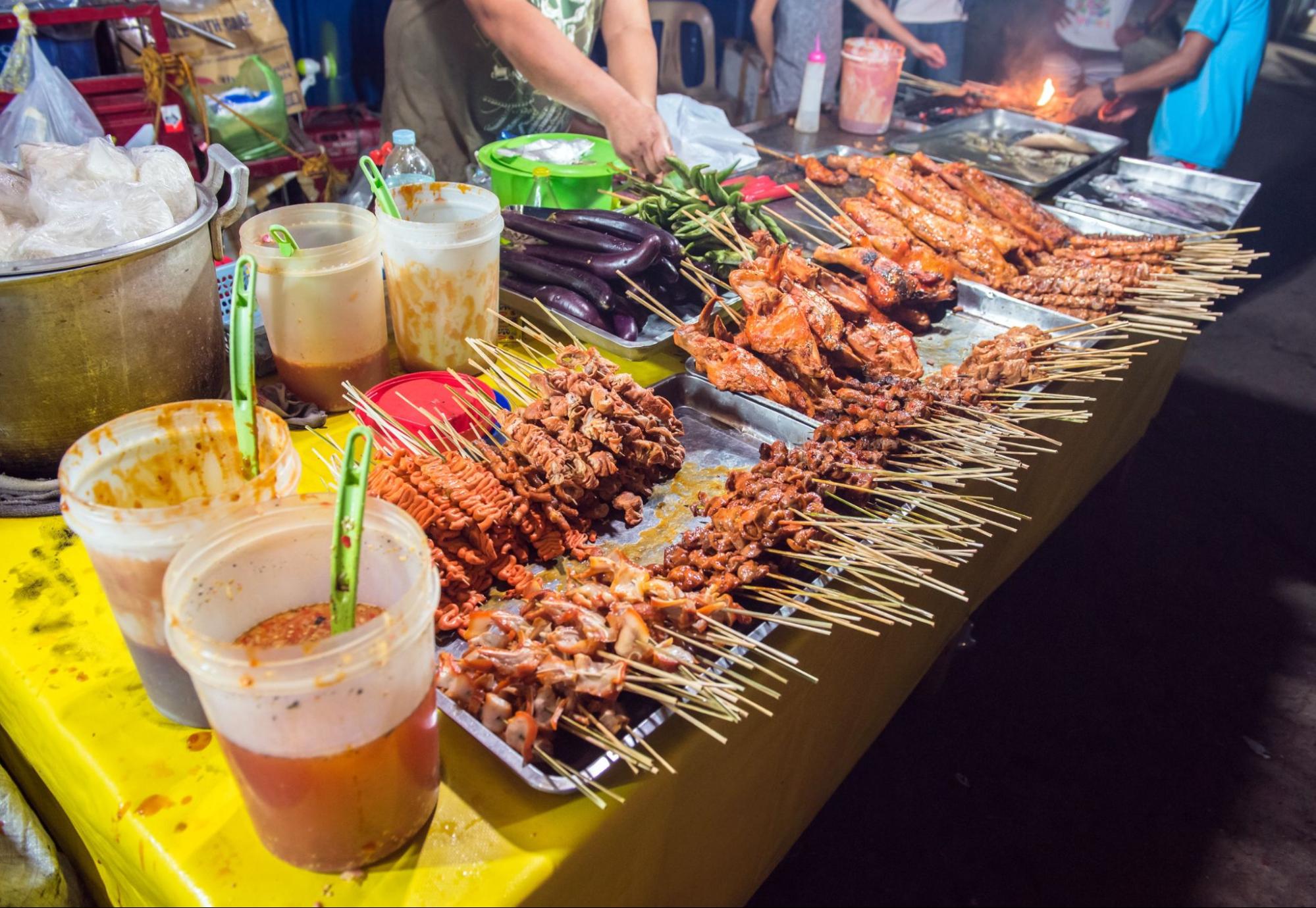In a groundbreaking move announced in mid-June 2023, the Philippines is set to launch a new digital nomad visa program, paving the way for remote workers and digital nomads to call Southeast Asia their home for an extended period.

This visionary initiative not only seeks to draw in a wave of remote professionals but also aims to boost the Philippines' tourism revenue while capitalizing on its irresistible tropical allure. Certainly, to travel to the Philippines, you will need to obtain a Philippines visa. The specific type of visa you need will depend on factors such as your nationality, the purpose of your visit (tourism, business, etc.), and the intended duration of your stay.
Key Features of the Philippines Digital Nomad Visa
12-Month Initial Term, Renewable for 12 Months
- The centerpiece of this new visa program is its 12-month initial term, with an enticing option for renewal, extending the stay for an additional 12 months. This two-year opportunity offers digital nomads an extended experience of the Philippines' diverse and vibrant culture.
Non-Tax Resident Status
- A significant attraction for digital nomads is the promise of non-tax resident status. Holders of the Philippines digital nomad visa will not be subject to local taxation, paying taxes only at the source. This tax-friendly environment further enhances the Philippines' appeal as a hub for remote work.
Focus on Connectivity
- Recognizing the importance of reliable internet access for remote work, the Philippines government has pledged to enhance connectivity. This commitment addresses a crucial concern for remote workers, ensuring a smooth and productive work environment.
Aligning with Southeast Asian Trends
- The Philippines joins a select group of Southeast Asian countries, including Malaysia, Thailand, and Indonesia, in offering digital nomad visas. This regional alignment underscores the growing trend of Southeast Asian nations actively courting remote workers.
Understanding Digital Nomad Visas
- A digital nomad visa serves as a golden ticket for remote workers, granting them the privilege of temporarily residing in a foreign country, often for durations ranging from six to twelve months, with provisions for renewal.
- It's important to note that holders of digital nomad visas do not possess the right to seek local employment or engage in local economic activities. Their work must be exclusively for companies or clients based outside the host country.
- Many digital nomad visa programs also extend the invitation to applicants to bring along their families for an immersive overseas experience.
Path to Permanent Residency and Citizenship
- Beyond the immediate benefits, securing a digital nomad visa can, in some instances, serve as a stepping stone toward achieving permanent residency and even citizenship in the host country.
Philippines Digital Nomad Visa Requirements
While the precise details of the Philippines digital nomad visa requirements remain under development, the following eligibility criteria have been outlined:
- Valid Passport: Applicants must possess a valid passport at the time of application.
- Remote Work: Eligibility hinges on applicants working remotely, either as employees, freelancers, or business owners, for entities situated outside the Philippines.
- Minimum Income Requirement: The government will establish a minimum income threshold (exact amount forthcoming).
- Health Insurance Coverage: Applicants must hold an international health insurance policy providing coverage in the Philippines for the duration of their stay.
- Clean Criminal Record: Applicants must present a clean criminal record.
Applying for the Philippines Digital Nomad Visa
- The application process for the Philippines digital nomad visa is currently in the developmental stage, with details forthcoming. Prospective applicants are encouraged to stay informed about the specific requirements and procedures as they are released by the government.
The Philippines for Digital Nomads
- Southeast Asia has perennially been a sought-after destination for digital nomads, thanks to its balmy tropical climate and affordable cost of living. The Philippines, boasting over 7,000 islands and the vibrant urban hub of Manila, is no exception.
- While internet connectivity can sometimes be a challenge in certain areas, digital nomads have ingeniously found ways to overcome these obstacles, ensuring that work is not compromised while they revel in the Philippines' breathtaking natural beauty, including lush tropical forests, pristine beaches, and awe-inspiring volcanoes.
Get Your Digital Nomad Visa Faster with Nomads Embassy
Applying for a digital nomad visa and navigating the intricacies of relocation can be a daunting task. It necessitates time, research, and the navigation of foreign bureaucracy, a process that can often cause digital nomads to abandon their plans halfway through.
- Enter Nomads Embassy: The World's First Embassy for Digital Nomads. This pioneering initiative transforms the visa application experience with its streamlined procedures, handpicked local immigration experts, and cutting-edge platform.
- Nomads Embassy has scouted the globe for the most dependable immigration lawyers, poised to assist members with their digital nomad visa applications. Elevate your chances of visa approval while enjoying peace of mind, knowing that a seasoned legal professional is dedicated to your cause when you partner with Nomads Embassy.
- Stay in the loop regarding the latest developments surrounding the Philippines digital nomad visa by subscribing to the Nomads Embassy newsletter. Discover when and how to seize this exciting opportunity today!
General Consensus
When examining the consensus regarding the Philippines among Reddit digital nomads, travel bloggers, and expats, it becomes evident that opinions are mixed. Here's a breakdown of the pros and cons:
Pros:
- English Proficiency: English is widely spoken, offering one of the lowest language barriers in Southeast Asia.
- Dating and Culture: Dating is more approachable between foreigners and locals, with fewer cultural barriers. The people are often described as welcoming and friendly.
- Quality of Life: Factors such as air quality, places to work from, overall friendliness, freedom of speech, cost of living, recreational activities, peace, and access to air conditioning are rated as "great."
Cons:
- Internet Speed: Online business in the Philippines can be challenging due to poor internet speeds.
- Cuisine: Local food can be overly salty or sweet, sometimes not catering to Western taste buds. Quality and authenticity can vary.
- Quality of Life: Some perceive the quality of life as mediocre, and there may be concerns about racial tolerance.
Debunking the Myths
Internet Speed
One of the major concerns for digital nomads considering the Philippines is internet speed. However, it's important to note that the Philippines' internet infrastructure has improved in recent years. Here are some practical insights into internet usage:
- Video calls, copywriting research, file downloads, and streaming can be accommodated by the internet speeds for most digital nomads.
- Large files can be downloaded swiftly, and Skype video calls generally have a high success rate.
- Streaming high-definition content on platforms like YouTube is feasible.
- Many digital nomads have reported no significant issues with getting work done online.
Local Cuisine
While the local cuisine may not always align with Western preferences, particularly in terms of saltiness and sweetness, it's important to remember that culinary preferences are subjective.

In popular tourist areas like Cebu, Bonifacio Global City (BGC), Boracay, Siargao, and Palawan, you can find a more diverse and international range of food options. Additionally, cooking at home allows you to tailor your meals to your liking.
Quality of Life
The Philippines is often praised for its low cost of living. Some argue that the quality of life may not match that of other destinations like Thailand. However, with resourcefulness, digital nomads can enhance their quality of life in the Philippines.
Unlike certain parts of Thailand, there is generally no two-tiered pricing system that discriminates against foreigners. Additionally, some establishments offer discounts to tourists, contributing to a more affordable lifestyle.
It's More Fun in the Philippines
Ultimately, being a digital nomad is not just about work; it's about experiencing life and adventure. If you seek a balance between work and leisure, the Philippines offers a plethora of activities, including island hopping, scuba diving, surfing, nature hikes, and relaxing on beautiful beaches. The country's diverse landscapes and vibrant culture make it a top choice for digital nomads who value exploration and adventure.
FAQ
- What is a digital nomad visa?
A digital nomad visa is a type of visa or residency permit that allows individuals to live and work remotely in a foreign country for an extended period. It is designed for professionals who can perform their job duties online from anywhere in the world.
- When was the Philippines digital nomad visa introduced?
The Philippines digital nomad visa was announced in June 2023 under the Digital Nomad Act.
- What are the key features of a digital nomad visa?
Digital nomad visas typically include long stay options, permission to work remotely, income and tax requirements, a specific application process, and the possibility of renewal.
- What are the requirements for the Philippines digital nomad visa?
As of now, the known requirements for the Philippines digital nomad visa include having a valid passport, working remotely for a company or clients outside the Philippines, meeting a minimum income requirement (specific amount to be determined), having international health insurance coverage for the duration of the stay, and maintaining a clean criminal record.
- Is English widely spoken in the Philippines?
Yes, English is widely spoken in the Philippines, making it easier for English-speaking digital nomads to communicate and conduct business.
- What is the cost of living like in the Philippines?
The Philippines is known for its relatively low cost of living compared to many Western countries. Expenses related to accommodation, food, transportation, and entertainment are generally affordable.
- What is the quality of internet connectivity in the Philippines?
Internet connectivity in the Philippines has improved in recent years. Larger cities and popular tourist destinations typically offer reliable and fast internet connections. However, in more remote areas, internet speed and stability may vary.
- Are there co-working spaces available in the Philippines?
Yes, many cities in the Philippines, especially those frequented by digital nomads, provide co-working spaces. These spaces offer a professional environment with reliable internet access.
- Can digital nomads in the Philippines access healthcare facilities?
Healthcare facilities can vary in quality across different regions of the Philippines. Major cities typically offer modern medical facilities, while remote areas may have limited access to quality healthcare.
- What is the time zone in the Philippines?
The Philippines operates on the Philippine Time Zone (PHT). Digital nomads should consider this time zone if their work involves coordination with clients or teams in other parts of the world.
- How can an Employer of Record (EOR) assist with managing remote employees in the Philippines?
An Employer of Record (EOR), such as Remofirst, can handle administrative tasks, onboarding, people operations, and payroll for remote employees working in the Philippines. This partnership simplifies workforce management for employers and employees.
To obtain a Philippines eVisa
- Step1: Complete the online application by providing your passport details.
- Step2: Submit payment online using a credit card.
- Step3: Monitor your email for confirmation of payment and receipt of your eVisa, which will be sent electronically.
